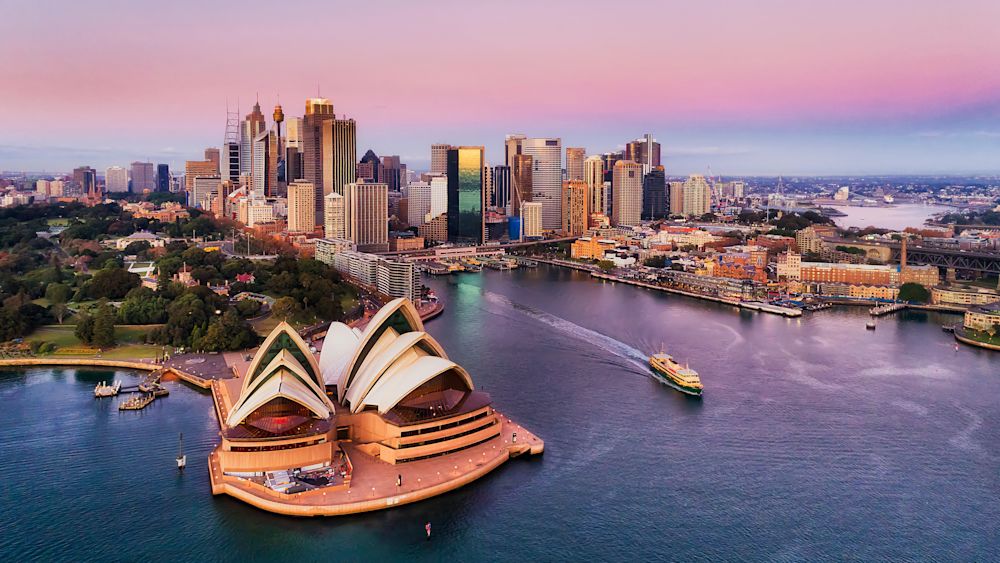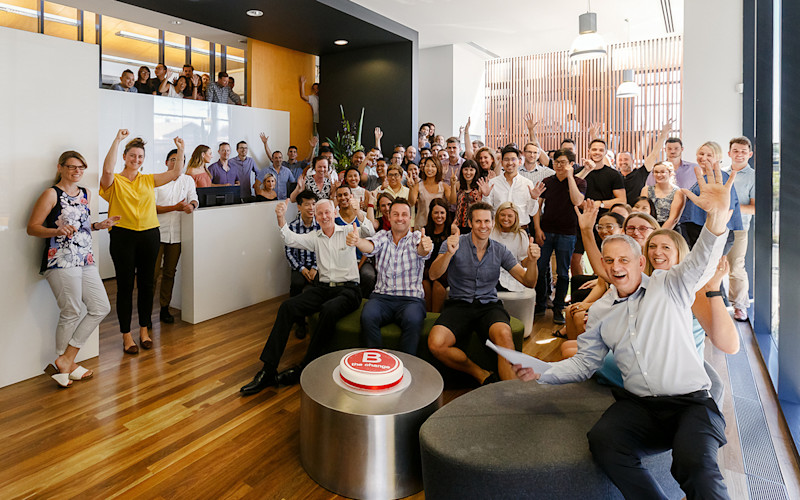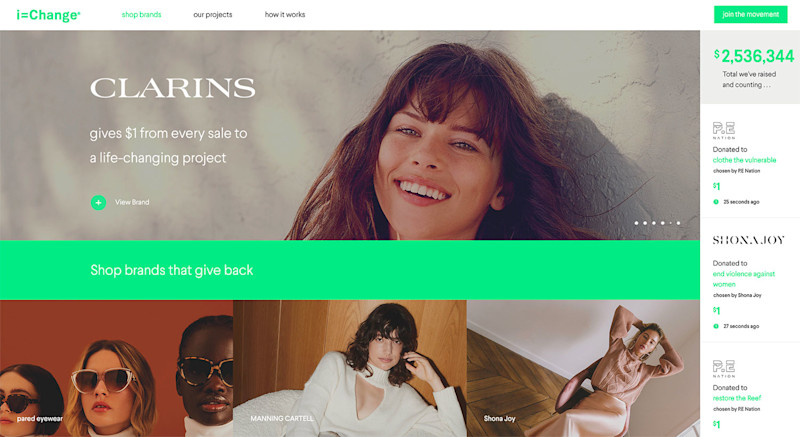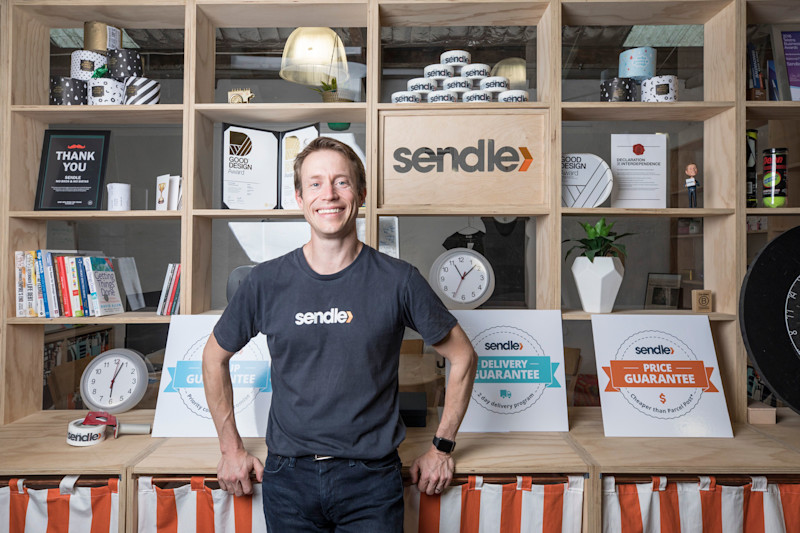- Iterate
- Meet The Team
- Ten B Corps Driving Impact in Australia
Table of contents
Almost 10% of B Corps worldwide can be found in Australia and New Zealand - significant considering the region’s population is around 30 million - and that number is growing.

Who Gives a Crap
Who Gives a Crap started when Simon Griffiths, Danny Alexander, and Jehan Ratnatunga learned that 2 billion people live without access to a toilet. So, with the idea that we all can make the world a better place and their love for toilet jokes, they decided to turn something as simple and basic as toilet paper into something purposeful and fun. That is why toilet humor is the core of their marketing strategy.
After a successful crowdfunding campaign in 2012, they started producing and selling sustainable toilet paper, tissues, and paper towels while donating 50% of profits to help build toilets and improve sanitation in the developing world. Since then, Who Gives a Crap has been able to donate over AUD 8.3 million (USD 6 million), and expand from Australia to the United States and Europe.
On top of that, Who Gives a Crap prides themselves on being committed to make the world a better place starting with its employees. That is why the company gave all employees a week off in September for mental health and self-care after a tough 2020.

Karst Stone Paper
Karst Stone Paper is challenging the office-supplies industry by producing the world’s first stone paper notebooks, journals, and planners, as well as treeless pencils and other eco-friendly alternatives. Intending to leave the world better than they found it, the company sources the materials from the rubble left over from construction and mining sites, donates a portion of sales to the One Tree Planted Foundation to help plant trees, and sponsors numerous events that aim to build confidence amongst youths.
In addition, Karst Stone Paper proved its resilience and innovation during the COVID-19 pandemic when it partnered with Rescue Brand to distribute hand sanitiser to as many Australians as possible.
The company started two years ago with a capital of AUD 30,000 and now has more than 70,000 customers in 84 countries, generating more than AUD 1.2 million in annual revenue.
ClarkeHopkinsClarke
ClarkeHopkinsClarke is Australia’s largest B Corp certified architectural practice that takes a holistic approach, considering the wider economical, cultural, environmental and community impacts. With over 55 years of operation, the company has experience across diverse sectors, including multi-residential, commercial, education, healthcare, aged care, retail, and mixed-use.
They were first certified as a B Corp in 2016 to change the nature of business and prove that businesses can be both profitable and ethical.
“We found our tribe with B Corp,” CHC Architects Partner Robert Goodliffe told The Org. “I believe B Corps have a great business advantage as the world changes rapidly and our social, political and financial institutions are shown to be lacking. ‘Business as usual’ is over.”
This year, ClarkeHopkinsClarke achieved re-certification with 117.4 points (up from 95.9 last time), which puts them in the top 5% of Australian B Corps and in just a handful of B Corps worldwide above 110 points (out of the 200 available points for companies to hit for recertification).

Future Super
Launched in 2014, Future Super is the world’s first carbon-neutral pension fund and Australia’s first fossil fuel-free superannuation fund. This ethical financial services company aims to encourage and facilitate the movement of money away from fossil fuels and other unethical industries through fossil-fuel-free investment products. These include investments in industries that provide benefits for the environment, society and the economy.
For example, some of the fossil-fuel-free investment options include a “Balanced Impact” fund that invests in existing clean energy and social impact projects or a “Renewables Plus Growth” fund in which investments are done in new and existing clean energy projects.
Kirstin Hunter, CEO at Future Super, told The Org, “The B Corp movement is in tune with Future Super’s mission to grow our nation's retirement savings by investing in a future free from climate change and inequality. Our core purpose has enabled us to meet these highest standards of verified social and environmental performance, transparency and legal accountability.”
Future Super manages almost AUD 900 million in superannuation assets and is one of the fastest-growing financial services businesses in the country. In the last financial year, its three investment options were the first, second, and third best performing balanced options in Australia.
Bank Australia
Bank Australia is the first customer-owned bank in Australia, which means that they answer to their customers instead of external shareholders. Guided by a Responsible Banking Policy, the company provides everyday banking services and loans only to those having a positive impact, such as individual customers, community renewable energy, and community and disability housing to help them have a positive impact on people and the planet. The bank is also the first in the region to have its deposit and home lending products certified ‘Responsible’ by the Responsible Investment Association of Australasia.
Even though Bank Australia became a certified B Corp in June this year, they have been “doing good” for nearly two decades. Some of its triumphs include becoming the first Australian bank to run on 100% renewable electricity, establishing a customer-owned Conservation Reserve, committing to never lend to industries that do harm (fossil fuels, live animal export, gambling, arms and tobacco), and donating 4% of after-tax profits to projects supporting people and the planet.
As Fiona Nixon, Head of Strategy and Communications at Bank Australia, said, "(Becoming a B Corp is) a message to our customers that says: we take this very seriously, and we’re in it for the long haul.”
i=Change
i=Change is a social-impact tech platform for purpose-driven retailers from all kinds of categories, from clothing to beauty products to coffee, that want to contribute to projects committed to the development of women and girls globally. The model is simple, with every sale made through the platform, i=Change gives back AUD 1 to one of the carefully selected NGOs. It is 100% transparent, and impacts can be seen in real-time.
As Jeremy Meltzer, founder and CEO, told The Org, “The B-Corp certification delivers a further meaningful statement of ethics and commitment - to using business as a force for good.”
So far, i=Change has donated more than AUD 2.5 million to carefully selected NGOs, which have empowered over 230,000 women and girls in 14 countries. On top of that, the company has been recognized as one of the 50 most innovative start-ups in Australia.

Eat Me Chutneys
Eat Me Chutneys is innovating the food industry by using rescued wonky produce and Fairtrade-certified ingredients to create their chutneys. For example, the company uses organic ‘rescued’ eggplants and Fairtrade organic spices to create its one-of-a-kind organic eggplant and curry leaf chutney. So far, this B Corp has rescued 6.05 tonnes of organic produce and is the only company in Australia to offer certified Fairtrade chutney. As part of its business model, the company also offers mentoring and employment to disadvantaged female job seekers.
Its commitment to tackle food system injustices has led Eat Me Chutneys to be included in the 2018 and 2019 B Corp awards “Best for the World” for their contributions to their community.
Unico Zelo
Unico Zelo produces wines and spirits in the most sustainable way possible. The business started in 2012 with the purpose to showcase drinks to the rest of the world that embrace native Australian ingredients that pay homage to the indigenous owners of the land. As a result, the products not only support the local agricultural industry but also taste like Australia whether that’s using grape varieties that can be dry-grown in desert-like environments or adding native ingredients such as desert lime, Davidson plum, and peppermint gum to create gins, bitters and liqueurs. Since then, Unico Zelo’s portfolio has grown and it now includes a winery, a social winery cooperative and a spirit distillery.
Unico Zelo is shaking up the beverage industry by showing how it is possible to implement sustainable practices that protect the earth and create new ways of using native botanical ingredients, while at the same time experiencing double-digit growth year-on-year.
As Brendan Carter, co-founder of Unico Zelo, said in an interview, “We are directly invested in the growth of the South Australian environment - as it grows in sustainability, so does our company.”
Sendle
Founded in 2014, Sendle focuses on being a force for good through great technology, design and people. This game-changing company is Australia’s first 100% carbon-neutral shipping service that provides door-to-door parcel delivery at competitive rates for more than two million small and medium-sized businesses.
Their strategy consists of collecting multiple small deliveries from individual sellers to take advantage of better shipping rates that are usually only available to the ‘“big guys.” Besides, bundling deliveries together is not only cheaper, but also helpful for shipping speed and has a better environmental impact. In fact, every single package shipped with Sendle is carbon neutral.
Sendle considers the environment a key stakeholder and has offset more than 16 billion kilometres of carbon since it launched six years ago. That’s equivalent to driving a one tonne truck from planet Earth to Mars and back 128 times.
Sendle currently operates in Australia and the United States, reaching more than half a million customers.
As James Chin Moody, CEO and co-founder, told The Org, “The more positive role you play in the environment, economy and society, the better off you’ll be in business. What’s good for the planet, your customers, suppliers, and team will also be good for your shareholders.”

Harvey
With a B Impact Score of 134 out of 200, Harvey uses marketing as a force for good. Through data, tech, and creativity, this strategic marketing team assists businesses that are contributing to one or more of the UN’s Sustainable Development Goals (SDGs) to grow and increase their impact. They primarily help in 3 ways: setting a vision and roadmap, defining a marketing and brand strategy, and executing and delivering action to the marketing strategy.
Harvey exists to unlock the potential of the new economy to leave behind a better world. That is why they donate 5% of revenue to regenerating the environment and 29% of their time to conscious businesses.
As Rebecca Smallchua, CEO of Harvey, said, “This desire to be better is the ‘why’ behind our B Corp certification. Going through the months-long process provided us with a helpful framework to make changes to the business, as well as the opportunity to reflect on our personal values.”
--
The Org is a professional community where transparent companies can show off their team to the world. Join your company here to add yourself to the org chart!
In this article


The ORG helps
you hire great
candidates
Free to use – try today